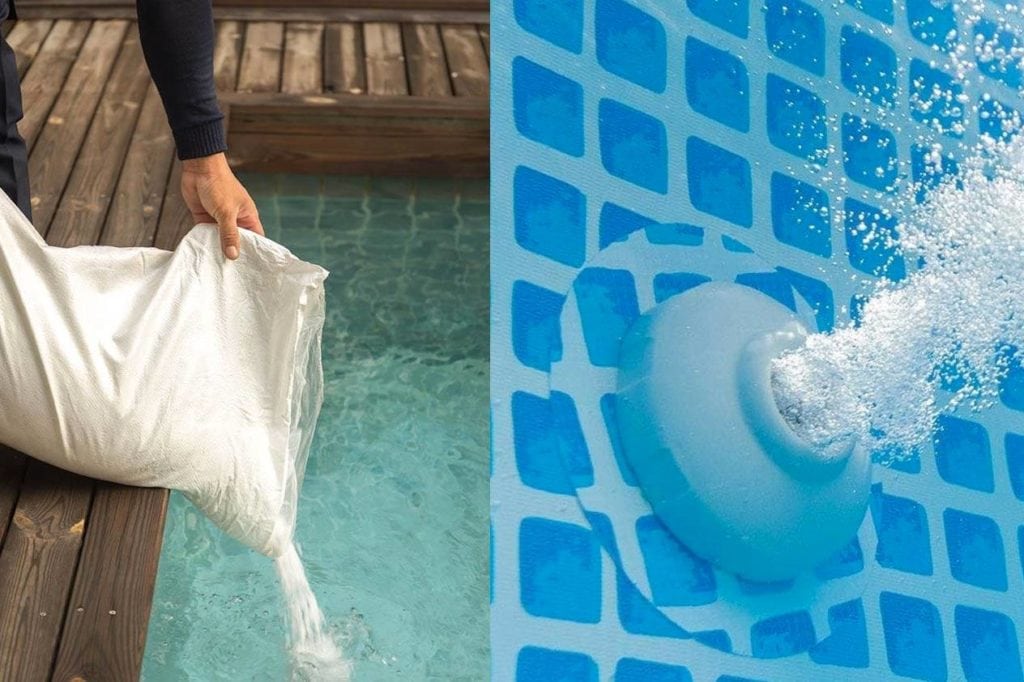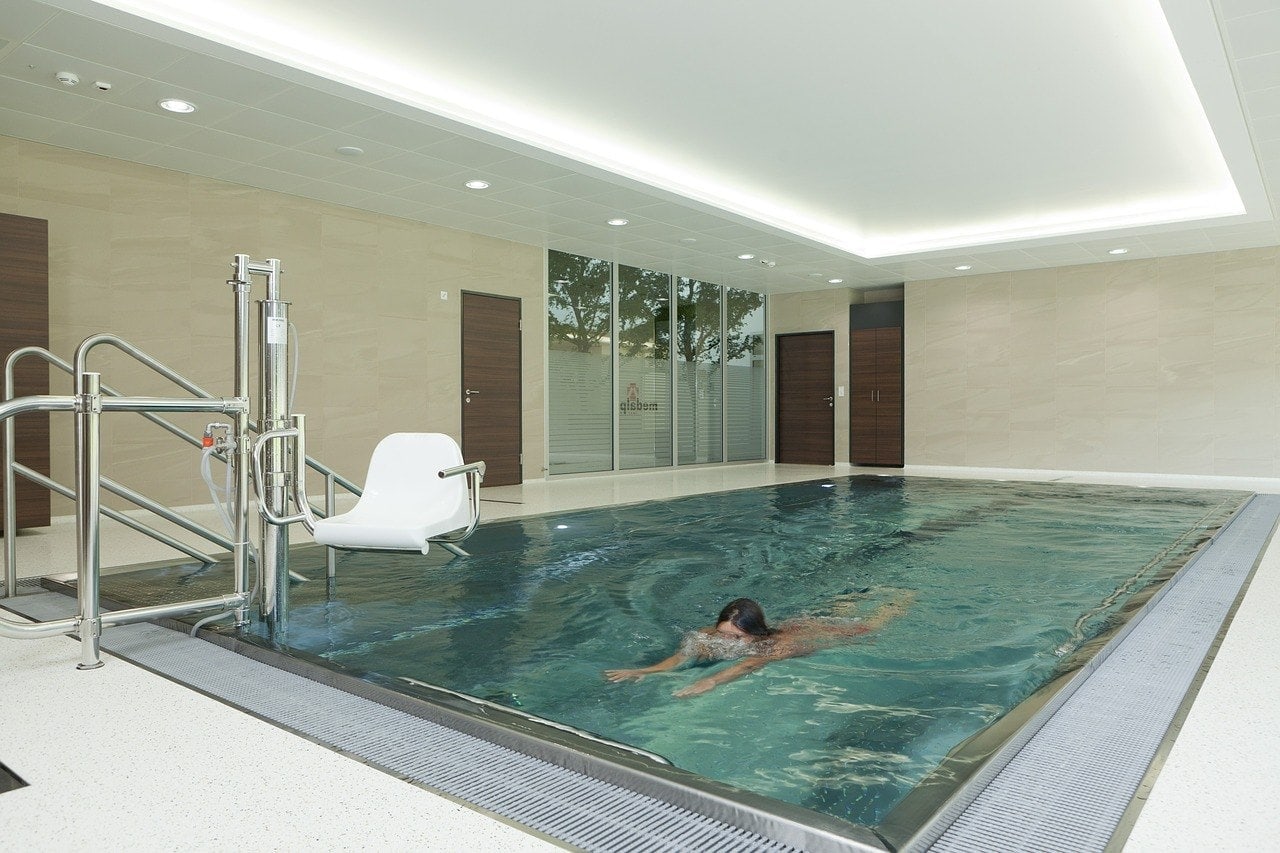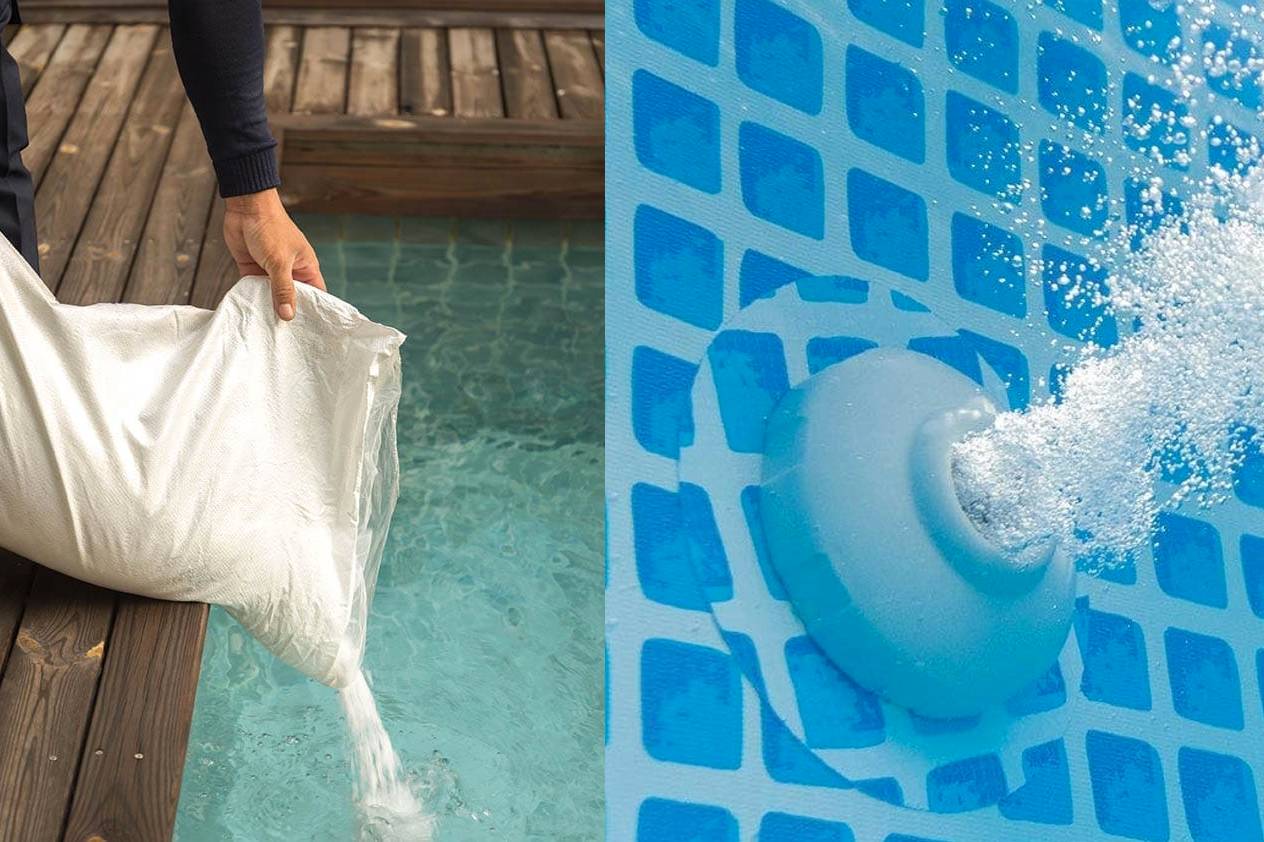Saltwater vs Freshwater Pools: Pros & Cons
-
Pete Ortiz
- Last updated:

There are several reasons why you might be looking into the difference between saltwater and freshwater pools. You may be installing a new pool, or maybe you have heard some good things about saltwater swimming pools and are interested in learning more about them to see if they are right for you.
We are going to take a close look at both types of swimming pools to see if there is an advantage to one method over the other so you can see which type is right for you. Keep reading while we look at chemical costs, maintenance demands, damage to your skin, and more to help you make an educated decision.
Freshwater Pools
Freshwater swimming pools are far more common than saltwater pools and have been the traditional standard for many years. Because freshwater pools are so popular, it’s easy to find information on how to fix just about any problem that might come up while you are maintaining your pool. Replacement parts are easy to find and cheap to purchase.

The downside to freshwater pools is that they require a lot of chlorine to keep them sanitized. As the chlorine gets used up, it creates combined chlorine. Combined chlorine is responsible for the powerful chlorine smell that you might notice around some swimming pools, and these combined chlorines can also cause itchy skin and red eyes. To remove the combined chlorines, you need to shock the pool, which is essentially pouring in more chlorine.
All of this chlorine can affect the pH and other sensitive chemical balances in your water, requiring you to add additional chemicals. Additional chemicals will drive up the cost of maintenance over time.
- Much more common
- Inexpensive to repair
- Harsh on skin
- Expensive chemicals
- Chlorine smell
Saltwater Pools
Saltwater pools use a unique generator that transforms the salt in the water into chlorine using an electric current. Ths chlorine then sanitizes the water before turning it back into salt again. This process happens over and over again with almost no salt lost in the process. This system frees you from the need to add chlorine to your pool every few days. Since you are not continuously adding chemicals to the water, the pH remains very stable throughout the swimming season, and you save money on other chemicals as well. This system produces very few combined chlorines, so there is never any chlorine smell, and the water feels soft against your skin and is unlikely to cause red eyes or itchy skin.

The downside to using a saltwater pool is that very few people have any experience using them, so if any problems come up, it’s much harder to find a solution. There will be very few spare parts around, so anything you need to purchase will cost much more than the freshwater counterpart, and if the unique generator breaks down, it will be hard to find a maintenance specialist in most places.
- Feels soft against the skin
- Fewer chemicals
- No odor
- Water pH is more stable
- Expensive to repair
- Hard to find experienced help
Summary
Deciding to use a saltwater pool or a freshwater pool comes down to personal preference more so than which one is better. If you have a high budget and sensitive skin, a saltwater pool can increase your swimming enjoyment, but you must not be afraid or incapable of solving problems that might arise yourself. Besides faulty generators, we know very little about the types of issues that can occur over many years of using a saltwater pool.
If you enjoy the comfort of being backed by decades of experience and like to find almost any part you need at the local pool store, we recommend sticking with the freshwater pool. An improper balance of pool chemicals causes most chlorine smells, rashes, and bleached clothing, and you can remedy them by correcting the levels. The cost of chemicals is high, but it’s a well-proven system that has stood the test of time for a reason.
We hope that you have found this comparison helpful and it has helped you choose between these two popular styles of swimming pools. If you have enjoyed reading, please share this guide to the difference between saltwater and freshwater pools on Facebook and Twitter.
Featured Image Credit By: Left – Bignai, Shutterstock
Contents



